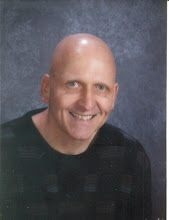"Lazzari's Sports Roundup" ---- 03-17-07
"Pete Maravich could do more with a basketball than anybody I have ever seen." ------ "The Coach," John Wooden
As kids, we'd play tons of pick-up basketball games at Mark's house in the mid-'70s; would be 3-on-3, 4-on-4--really didn't matter as long the teams were even. But before each of our daily tilts--viewed by most of us as nothing less than obligatory sustenance--we'd each pick the ABA/NBA player we were gonna "be" that day. Mark might be Kareem, Steve maybe Dave Cowens, Jay perhaps Dave Bing or George McGinnis; they'd change guys every so often depending on what pro was playing well at the time. For me, it was always the same player; I'd just casually call out "The Pistol" when my turn came up--my buddies always kindly allowing me to "be" Pete Maravich knowing he was my idol. Yeah, I could dribble between my legs pretty well and throw behind-the-back passes; a guy like Steve couldn't do those things, so he couldn't "be" Pete even if I was sick and missed a day. "‘Pistol,’" a smiling Jay would often say to me before each game, "time to put on a show." An unworthy, almost-embarrassed yours truly would only say, "I'll try, Jay --
I'll try."
The aforementioned memories return vividly to me thanks to Mark Kriegel's outstanding new book Pistol: The Life of Pete Maravich. As fine a piece of sports journalism as I've ever read, Kriegel chronicles the life of an individual whose innovative basketball wizardry would change the CULTURE of the game both at the street level and professionally; those of us who were too busy marveling just didn't realize it at the time. In this fine work, Kriegel begins with the upbringing of Pete's father, Press, in the industrial boroughs of Pennsylvania--where the game of basketball would undeniably become his salvation. But it would be his son, Pete, who would experience all the success and accolades that Press fell short of; Press would be the one to make sure of this (his son was Press' "ticket to basketball heaven," Kriegel writes). Pete DID become a child prodigy under Press' tutelage--even rendering the elder Maravich's college players in awe of a young teen who became known as "Pistol Pete." Kriegel takes the reader through the entire course of Pete's career at LSU--where he'd become college hoop's all-time scorer (3,667 points, 44.2 ppg WITHOUT the benefit of a 3-point shot) while playing for his Dad. A "bleached Globetrotter," Maravich was called; the flair he'd incorporate into both the college AND pro games is unmatched to this day.
The recurring theme in the book is the overwhelming pressure put on Pete Maravich--both self-imposed and from his father--for the majority of his life; Press even said at one time that Pete, as a collegian, had "more pressure on him than any kid in America." The reader is also privy to the demons possessed by Pete's mom, Helen, before she took her own life--fueling even more rage and destructive behavior from her son in the future. The book goes into detail about Pete's difficulty fitting into the pro game due to his unfamiliarity with the team concept--which can be blamed solely on Press; it was Press Maravich who always marketed Pete AS the team--regardless of where he was playing. Ultimately, Kriegel dramatically describes the details of Pete's death in 1988 while playing in a pick-up game--seemingly FINALLY at peace with himself after a life full of unmatched stress. And then there's the naming of Pete Maravich as one of the NBA's Fifty Greatest Players in History where his two sons accept on his behalf--they, too, victims of having the almost-cursed surname of Maravich during their young lives.
Perhaps my favorite part of this fantastic publication--maybe because I was viewing it on TV as a teenager that evening--is Kriegel's re-visiting the night of February 25, 1977; it would be Maravich's greatest night as a professional when, as a member of the Jazz, he scorched the Knicks for 68 points--prompting Knicks coach Red Holzman to call Pistol's performance "the best I've ever seen by a guard." Yes, and it came against defensive guru Walt "Clyde" Frazier of New York--who once told the cocky Maravich while Pete was at LSU that "I got something for you when you come in the league.....defense." Revenge? I'd say so--as the dumbfounded Frazier would later admit that Pete might have rung the bell for 100 that night had there been a 3-point shot in the league.
Without doubt, Kriegel's book is required reading for ANYONE interested in the pitfalls so familiar to fame; it's a magnificent work. In short, "Pistol" Pete Maravich was magic before "Magic" and #23 (his jersey number at LSU) before the OTHER #23 came along; Mr. Jordan will even bow down to that. Bottom line? Pete Maravich was simply way ahead of his time in the way he played basketball and, in a way, was penalized for it; Frazier now says Maravich--had he been playing today--would be "the most popular player in the league." None other than Earvin Johnson would be the one to tell Pete's kids, Jaeson and Josh, at the '97 All-Star game, "Your pops, he was the original. He was the real Showtime." Nope, no argument here. And looking back now at those games at Mark's house, maybe our buddy Steve SHOULD have been allowed to "be Pete" in my absence; yep, then he would have had the good fortune--even in a pretend situation--to know how it felt to "be" an individual who once played the game like no one ever had before--or ever will.
Bob Lazzari
Reprinted by permission of the Valley Times.



0 Comments:
Post a Comment
<< Home